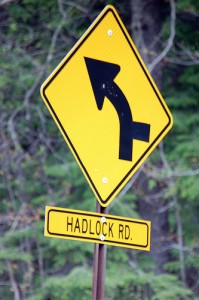 Life has a way of moving on, even when the client is in a Chapter 13.
Life has a way of moving on, even when the client is in a Chapter 13.
Assets come and go, life gets better or sometimes worse.
The direction of travel changes.
When a Chapter 13 case converts to Chapter 7, bankruptcy lawyers struggle with what assets the Chapter 7 trustee can liquidate.
The facts in Warfield v. Salazar illustrate the problem: the debtors filed Chapter 13 when they were entitled to a pre petition tax refund.
They did not succeed in confirming a plan and the case converted. Only between filing and conversion, they had received and spent the tax refund.
The Chapter 7 trustee made demand on the debtors for the amount of the refund.
There was no contention that the right to the refund wasn’t property according to this helpful site, of the estate as of the commencement of the case. But at conversion, it no longer existed.
Both the bankruptcy court and the Bankruptcy Appellate Panel held that the plain language of 348(f) controlled:
Except as provided in paragraph (2), when a case under chapter 13 of this title is converted to a case under another chapter under this title—
(A) property of the estate in the converted case shall consist of property of the estate, as of the date of filing of the petition, that remains in the possession of or is under the control of the debtor on the date of conversion;
The refund didn’t exist as of the conversion date and therefore the debtor has no obligation to turn over its value to the Chapter 7 trustee.
In the absence of bad behavior that lend to the loss of the asset, the plain language of the statute prevails.
Note too how 348 deals with one of the other condundrums of Chapter 13: the provisions of §1306 that property of the estate includes all management for rental properties acquired during the Chapter 13 and all earnings after the commencement of the case.
Suppose the debtor has prospered during the 13 and has twice the cash on hand at conversion that he had at filing. Or he inherited property more than 6 months after filing, or he received a gift or other windfall.
Section 348 provides that the Chapter 7 estate upon conversion is limited to the assets the debtor had at filing and still has at conversion.
Not only does 348 simplify our analysis, but it assures the debtor, worried about the reach of 13 into their post filing life, that the good that comes after filing but before conversion is not lost to creditors.
Image courtesy of InAweOfGod’sCreation.








Thanks, Cathy. That’s a great explanation of how 348 interacts with 1306 for determining assets available to the trustee in a 13 bankruptcy converted to a 7. My notes on that weren’t as clear as they are now.
Please tell the UST to explain this to all Chapter 7 Trustees, the word doesnt seem to trickle down and even in converted cases, the Chapter 7 trustee questions at 341 meetings always relate to total current assets. You might want to mention that the tax refund mentioned above was not exempted, although that is an obvious implication.
It was worse in this case than not exempted. It wasn’t scheduled because the case was filed in the middle of the tax year. The refund wasn’t obvious or liquidated til the following spring.
How many people schedule a tax refund for the current tax year?